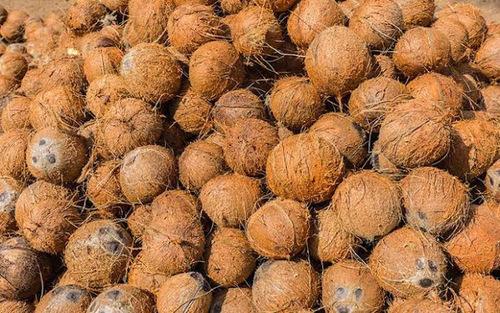Kerala Coconut – The Tree of Life in God’s Own Country
Coconut is more than just a crop in Kerala — it is a way of life. The very name "Kerala" comes from "Kera," the Malayalam word for coconut, symbolizing the deep-rooted connection between the people and the palm. With its long, lush coastline and humid tropical climate, Kerala provides the perfect conditions for coconut cultivation, making it one of the top coconut-producing states in India.
Kerala coconuts are prized for their thick, juicy kernel, sweet coconut water, and high oil content. The trees are grown in almost every household, lining the backwaters, beaches, and fields — forming an iconic part of the state's scenic beauty. These coconuts are used extensively in traditional Kerala cuisine, especially in dishes like avial, thoran, stew, fish curry, and chutneys. Coconut milk and grated coconut are also used to add richness and flavor to both vegetarian and non-vegetarian dishes.
Beyond food, the coconut has a sacred and economic significance. The oil extracted from dried coconut (copra) is used not only in cooking but also in Ayurvedic medicine, skincare, and hair care. Coconut shells are used to make handicrafts and activated carbon, while coir extracted from the husk is a major cottage industry in Kerala, used to make ropes, mats, and brushes.
In religious rituals, the coconut is considered auspicious and is used in offerings, temple ceremonies, and festivals. The entire tree — often called the "Kalpavriksha" or the divine tree — is valuable, with every part serving a purpose: the leaves for thatching and weaving, the trunk for construction, and the inflorescence for tapping toddy (a natural alcoholic drink).
Kerala coconut products have also found a strong presence in international markets, with demand rising for virgin coconut oil, coconut chips, coconut cream, and desiccated coconut.
The Kerala coconut is not just a fruit — it’s a cultural emblem, an economic backbone, and a culinary essential. It represents sustainability, purity, and versatility, reflecting the spirit of Kerala itself. Whether in the form of a refreshing drink, nourishing oil, or flavorful ingredient, the coconut from Kerala continues to enrich lives across the globe.





